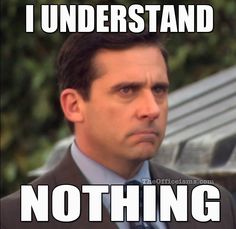Life can be tough and days can be extremely hard. My mother always used to tell me to “smile through the rain,” meaning I should smile even though I am going through a hard time. She suggested that smiling when upset can change your entire outlook and mood on the situation at hand. Is this true? Could moving a few muscles virtually change the way you feel in a situation?
A study performed by scientists at the University of Illinois and the University at Mannheim, which was published in the Journal of Personality and Social Psychology, was tested to determine how configuring a person’s smile through the use of a pencil would affect a person’s reaction to a situation. The null hypothesis in this study, as we learned in class, would state that people’s facial expressions do not affect their reactions to situations. Other the contrary, the alternative hypothesis under test would state that people’s facial configurations do affect their reactions to certain situations.
The study used 92 male and female college aged students where the students were told that they would be holding a pen in their mouth in different variations, in order to simulate physically impaired people and how they do normal, daily functions in ways different than other people. The pen in the subjects mouths would cause them to either create a frown, if the pen was held in between the lips, or as a smile, if the pen was held between the teeth. If the subjects knew that they were being directly tested for how their facial expressions, they might have been able to change the way they reacted to the certain stimulations; thus the researchers only told the students that they would be simulating a physically impaired person’s ways of doing daily tasks. During each variation of the pen in the mouth, (ex: forced-frown versus forced-smile) the participants were given several cartoon pictures, that had a humorous side to them, and were asked to rate the amount of humor each pictured contained, personally, on a 10-point scale.

https://thesciencedog.files.wordpress.com/2013/09/pencil-smile.jpg
The study found that the students who had forced smiles reported that the pictures were much funnier to them compared to the students who had forced frowns. Because this study was a randomized experimental study, variables that could affect a person’s emotions such as parental divorce, anxiety/depression, and money were randomly distributed between the groups tested.
Therefore, in this study, scientists would reject the null hypothesis.
In conclusion, it seems to be evident that forcing a smile on the face can affect the way you interpret different situations, both positively and negatively. Although, I feel that I would need to try this theory personally in order to truly believe that the the theory is correct. In addition, there needs to be a meta analysis, or a conclusion drawn from numerous studies results, to determine a better, more definitive conclusion on this question. I believe many confounding variables could be present that could affect a person from truly being able to change the way they feel within a situation depending on variables such as any psychological disorders and strength of the situation being endured.
Citations:
http://datacolada.org/wp-content/uploads/2014/03/Strack-et-al-1988-cartoons.pdf
https://www.ncbi.nlm.nih.gov/pmc/articles/PMC3760104/
https://www.scientificamerican.com/article/smile-it-could-make-you-happier/






